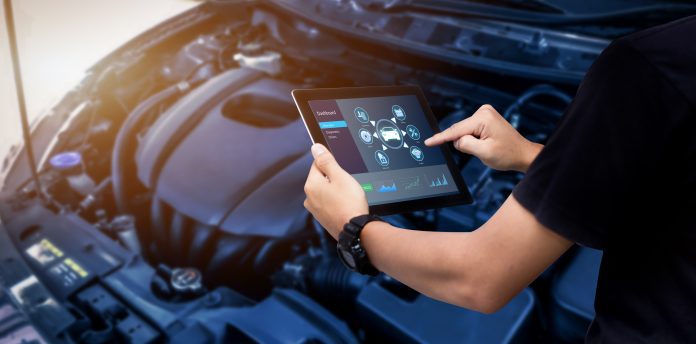5G technology offers a new era of high-speed, low-latency connectivity that will revolutionize almost every industry, including automotive. 5G will transform vehicles’ communication and operation with significantly faster data transfer rates and improved reliability.
Experts predict the market for automotive 5G applications will grow by over 25% per year for the next decade. Let’s explore the potential impact of 5G technology on vehicle connectivity, autonomous driving capabilities, and the future of transportation.
Vehicle Connectivity
Enhanced Communication
5G technology significantly enhances Vehicle-to-Vehicle (V2V) and Vehicle-to-Infrastructure (V2I) communication. Implementing 5G ensures smoother traffic flow and improved road safety by facilitating real-time data exchange between vehicles and surrounding infrastructure. For instance, vehicles can instantly share information about road conditions, traffic congestion, and potential hazards.
Infotainment Systems
The high-speed internet provided by 5G has transformed in-car entertainment, offering passengers seamless access to streaming services, online gaming, and real-time navigation. Passengers can enjoy high-definition video streaming and uninterrupted connectivity, making long journeys more enjoyable and perhaps avoiding the classic children’s question: are we there yet?
Remote Diagnostics and Maintenance
5G enables continuous vehicle monitoring, allowing for real-time diagnostics and predictive maintenance. Already, some vehicles send performance data to manufacturers and service centers, identifying potential issues before they become serious problems. This proactive approach reduces downtime, enhances vehicle reliability, and lowers maintenance costs.
Autonomous Driving Capabilities
Improved Sensor Integration
Autonomous vehicles rely heavily on sensors such as lidar, radar, and cameras. 5G enhances these systems by providing real-time data processing and decision-making bandwidth. This improved sensor integration allows autonomous vehicles to detect and respond to their environment more accurately and quickly.
Precision and Safety
The low latency of 5G ensures faster response times, which is crucial for the safe operation of autonomous vehicles. Enhanced communication between vehicles and infrastructure reduces the risk of accidents, enabling safer and more efficient autonomous driving.
Fleet Management
5G facilitates the coordination of both autonomous and driver-operated vehicle fleets, optimizing routes and improving energy efficiency. Fleet managers can monitor vehicle status in real-time, making adjustments to ensure optimal performance.
Overall Driving Experience
Augmented Reality (AR) Applications
5G enables the integration of augmented reality (AR) in vehicles with AR dashboards and heads-up displays. Drivers can receive real-time navigation, hazard warnings, and other critical information projected onto the windshield, reducing the need to take their eyes off the road.
Personalization
With 5G, in-car experiences can be highly personalized. AI-driven systems can learn driver preferences by automatically adjusting music, climate control, seat position settings, and customized routes, stops, and entertainment recommendations.
Eco-friendly Innovations
5G integration with smart city infrastructure can optimize traffic flow and reduce emissions. Real-time data from connected vehicles can adjust traffic signals and manage congestion, leading to more efficient and eco-friendly driving. Additionally, 5G-enabled vehicles can access information on charging station availability and optimize routes for electric vehicle efficiency.
Challenges and Considerations
Infrastructure Development
The widespread deployment of 5G networks is essential for realizing its full potential in the automotive industry. Developing the necessary infrastructure involves significant investment and logistical challenges, particularly in rural and underdeveloped areas.
Cybersecurity
With increased connectivity comes the need for robust cybersecurity measures. Data privacy and protection are crucial as connected vehicles become potential cyberattack targets. Implementing robust security protocols is essential to safeguard against hacking and malicious activities.
Conclusion
5G technology is set to revolutionize the automotive industry through improved vehicle connectivity, enabling safer and more efficient hands-on and autonomous driving. While challenges such as infrastructure development, cybersecurity, and regulatory issues remain, the potential benefits of 5G are immense.



